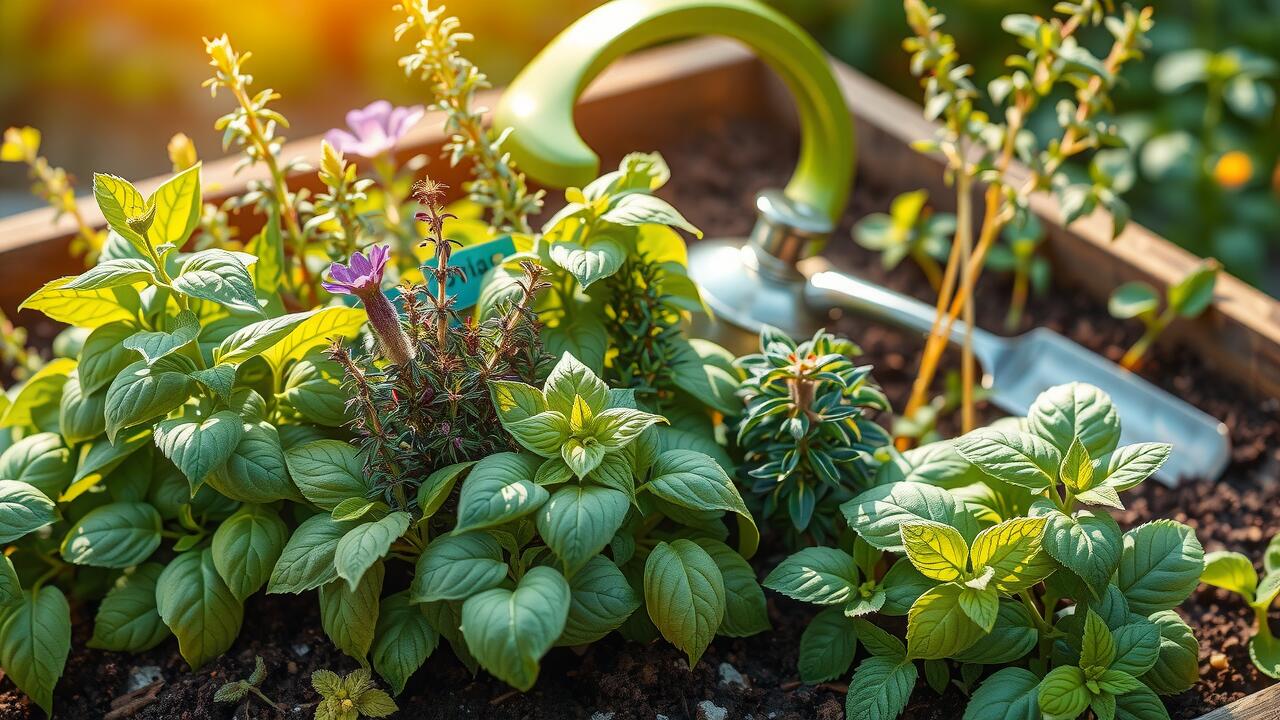The Influence of Growth Habits
Growth habits significantly impact the compatibility of herbs in a garden setting. Tall herbs, for instance, can overshadow their shorter counterparts, inhibiting their ability to receive adequate sunlight. This lack of light can stunt the growth of shorter herbs, leading to diminished yields and a less vibrant garden. Additionally, the root systems of different herbs may compete for space and nutrients, creating further challenges for their coexistence.
Some herbs tend to spread quickly, potentially overwhelming their less aggressive neighbors. When fast-growing herbs are planted alongside slower-growing ones, the former can dominate the available resources. This dynamic can drastically alter the intended garden design, causing certain herbs to fail or become less productive. Careful consideration of each plant’s growth pattern is essential for promoting a healthy and harmonious herb garden.
Continue reading this article for more information.
Tall Herbs vs. Short Herbs
When planning a herb garden, the height of the herbs can affect their growth and overall health. Tall herbs, such as dill and fennel, can create shade for shorter varieties, which may not thrive in low light conditions. This can lead to stunted growth or even the demise of the shorter herbs. Additionally, competition for resources becomes more pronounced as taller plants may overshadow their smaller counterparts, causing imbalances in nutrient intake and moisture retention.
Conversely, planting short herbs like basil and thyme alongside taller species can maximize space and enhance garden productivity when done correctly. However, careful placement is essential to ensure that the shorter herbs do not become hidden or deprived of essential sunlight. A balanced approach is vital. Understanding these dynamics helps in creating a harmonious garden environment where all herbs can flourish.
Soil and Water Requirements
When selecting herbs to plant together, understanding their soil preferences is crucial. Some herbs thrive in well-drained, nutrient-rich soil, while others prefer sandy or gritty mediums that mimic their native environments. For instance, Mediterranean herbs like rosemary and thyme flourish in dryer, less fertile conditions, whereas basil benefits from richer, moist soil. Planting these herbs in incompatible soil types can stunt their growth and lead to poor health, ultimately affecting the overall yield of your herb garden.
Water requirements also play a significant role in determining which herbs should be planted in proximity. Herbs such as sage and oregano are drought-tolerant and prefer to dry out between watering sessions. On the other hand, basil and cilantro enjoy consistently moist soil, demanding more frequent irrigation. Combining herbs with differing water needs can create an imbalance in the growing conditions, leading to underperformance in both categories. Understanding these requirements will aid in creating a harmonious garden, fostering the best growth for each herb variety.
Matching Herbs with Similar Needs
Planting herbs that have similar soil and water requirements can significantly enhance their growth and health. When herbs share these needs, they are less likely to compete for essential nutrients and moisture. For instance, basil and oregano thrive in well-drained soil with moderate moisture. Their compatibility ensures that both can flourish without hindrance, leading to an abundant harvest.
On the other hand, pairing herbs with drastically different needs can create an unhealthy growing environment. For example, parsley, which prefers slightly moist conditions, may struggle when planted alongside rosemary, a plant that prefers drier soil. This mismatch can lead to poor growth for one or both herbs. Careful planning and consideration of each herb’s preferences ensure a thriving garden space.
The Effect of Allelopathy
Allelopathy refers to the chemical interactions between plants that can either inhibit or promote the growth of neighboring species. Some herbs release natural compounds into the soil that have toxic effects on certain plants. This dynamic can lead to reduced growth rates or even death in susceptible herbs when they are planted too closely together. Understanding these chemical relationships is crucial for successful herb gardening.
Certain combinations of herbs may thrive together while others may struggle due to allelopathic effects. For instance, rosemary is known to inhibit the growth of basil and sage, making it advisable to plant them at a distance. Conversely, some herbs can enhance growth and flavor when planted in proximity. Knowing which herbs possess allelopathic properties allows gardeners to create more harmonious and productive growing environments.
What It Means for Herb Planting
Understanding allelopathy is essential when planning an herb garden. Certain herbs release chemicals into the soil that can inhibit the growth of neighboring plants. For example, sage is known to hinder the growth of basil, making it wise to plant these two herbs apart to ensure both thrive.
Careful consideration of which herbs to plant together can lead to a more productive garden. By avoiding combinations that may inhibit growth or lead to poor health, gardeners can create a harmonious environment. This thoughtful approach can not only improve yields but also enhance the overall health of the garden ecosystem.
FAQS
What are the main considerations when deciding which herbs should not be planted together?
The main considerations include growth habits, soil and water requirements, and allelopathy, which is the chemical interaction between plants that can inhibit growth.
Can tall herbs negatively affect the growth of short herbs?
Yes, tall herbs can overshadow short herbs, limiting their access to sunlight and potentially stunting their growth.
How do soil and water requirements influence herb planting combinations?
Herbs with different soil and water needs can compete for resources, leading to poor growth. It’s best to plant herbs with similar requirements together to ensure they thrive.
What is allelopathy, and why is it important in herb planting?
Allelopathy refers to the chemical substances released by plants that can inhibit the growth of nearby plants. Understanding allelopathy is essential to avoid planting herbs that may harm each other’s growth.
Are there specific herbs that should never be planted together?
Yes, certain combinations, such as basil and sage or mint and rosemary, can lead to poor growth due to competition for resources or allelopathic effects. It’s important to research specific herb pairings.
